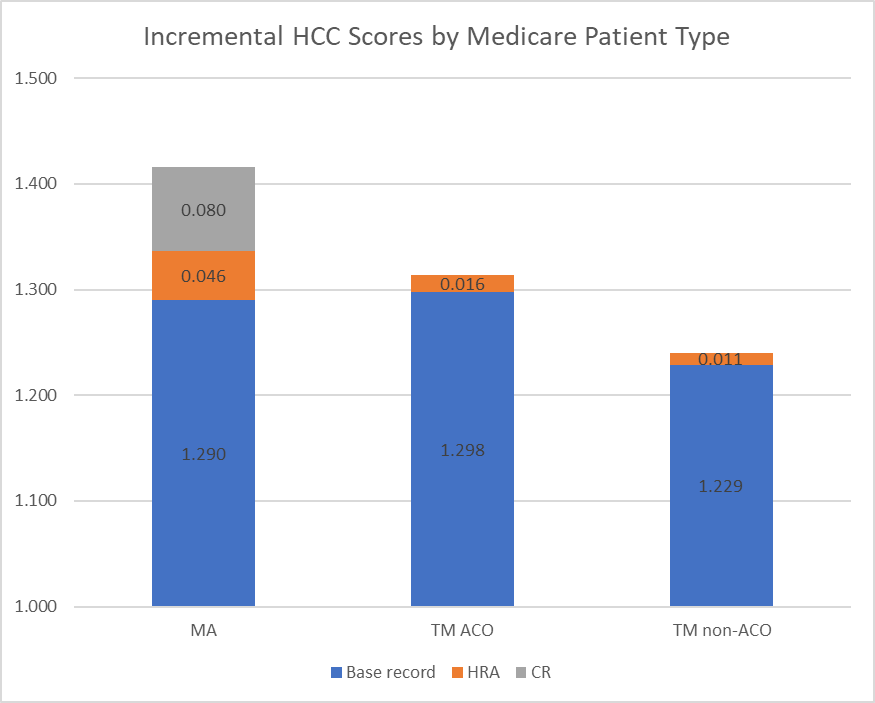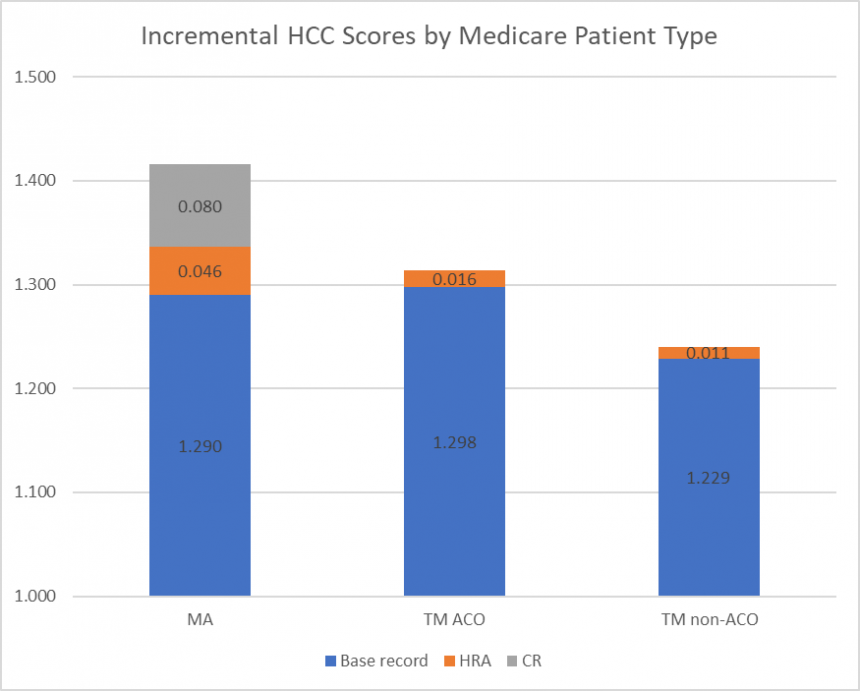Medicare Advantage (MA) plans utilize risk adjustment to account for differences in disease burden among their patient populations. The CMS hierarchical condition categories (CMS-HCCs) model is used to determine expected relative risk based on beneficiaries’ characteristics and prior health conditions.
In 2023, CMS proposed updates to their HCC risk adjustment algorithm, transitioning from ICD-9 to ICD-10 codes and increasing the number of HCC indicators. These changes will be implemented gradually from 2024 to 2026.
A study by Carlin et al. (2024) investigates whether MA plans have a tendency to up-code diagnoses compared to traditional Medicare (TM). They highlight the process through which MA plans can capture additional secondary diagnoses, emphasizing the importance of detailed coding for accurate risk assessment.
Analyzing CMS claims data from 2019, the authors compare cohorts of MA plans, TM beneficiaries in ACOs, and TM beneficiaries not in ACOs. They find that the addition of health risk assessments and chart review visits significantly impacts HCC risk scores, particularly in MA plans.
The study reveals the influence of diagnoses related to vascular conditions, congestive heart failure, and diabetes on HCC scores across all cohorts. While previous research suggested upcoding in MA plans, this study provides specific insights into the extent and mechanisms of this practice.

Overall, this study sheds light on the impact of risk adjustment and coding practices in Medicare Advantage plans, offering valuable insights for policymakers and stakeholders in the healthcare sector.






